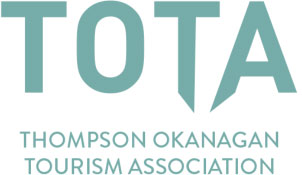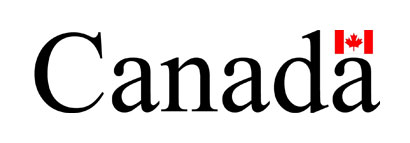
Few words produce more yawns than record keeping. It’s not fun, but it is essential. Far too many people lose money in taxes and struggle with their budgets because of lax (or non-existent) bookkeeping practices. So, keeping good records can save you time and money.
Keep Your Records in Top Form
First, you would do well to have your records in top form to ensure you aren’t missing any business expenses and in case you are ever the target of an audit. The CRA will often disallow anything and everything without proper documentation, sometimes even disallowing expenses with appropriate documentation. Good records work as a shield or insurance against over-eager auditors, helping keep your wallet safe.
Remember, the CRA is there for the government, not you, and they can disallow any expenses and tax deductions they consider iffy. If an audit reveals that you owe additional taxes, expect other audits, as they will likely come back for more money unless you have changed your record keeping. It also helps to remember that audits can take hundreds of hours and thousands of dollars to get through, either by paying someone to help you with the audit or getting fleeced by an aggressive auditor who knows the system better than you.
Regarding budgeting, few things are more important when running a business than knowing where your money is going and where you can trim the fat if needed. It’s no secret that prices of everything have gone up and will continue to go up; keeping clean records means you can identify unnecessary expenses and hidden costs, helping you build a lean, mean money-making machine. Maybe you need to increase your prices, and perhaps you need to switch suppliers; maybe you need to change payment options to avoid fees; whatever it is, you can see it coming and fix the problem before your bank account gets completely drained.
Create a Working System
Now that we have looked at the why, let’s look at the how. Proper bookkeeping practices can make or break a business, especially if you are incorporated. You don’t have to hire a bookkeeper (though it may be suggested depending on the size of your business), but you do need a system. It could be as simple as a record book by the door, filling it out daily or weekly. An Excel sheet works well, especially if you get fancy with the formulas or have partners you need to share access with online. Lastly, if you can afford to purchase systems with more capabilities, there are various programs you could use, the best of which is QuickBooks. The more time you plan and set up your system, the more time and money you can save yourself. I know it can be a pain, but it’s a matter of short-term pain and long-term gain!
When setting up bookkeeping, you should include the details for each expense by:
- Expense category.
- Date.
- Amount (with or without GST).
- Supplier name.
- GST paid.
- The invoice number on the receipt.
Keep all receipts sorted by category, then the month, store them in a safe, dry place, and hold onto everything for seven years. In the case of a large asset purchase, keep the receipts until after the asset is sold or disposed of. The CRA will not be lenient in the case of lost documents, such as in a fire or flood, so keeping digital copies could save you much trouble if in a bad situation.
Once your system is set up and secure, getting into the practice of totaling each expense category monthly will help you track your finances and identify any problem areas that may arise or expenses that may have been missed (by comparing the results to previous months), as well as helping you set and stick to a budget. This will also help you during a desk audit, where the CRA may call to ask you a question about your deductions on a previous tax return. For example, if you had a considerable expense in the prior year (maybe for building inventory or stocking up on a supply that is likely to increase in price soon), it may raise a red flag for the CRA. If you can find and explain the abnormality quickly, the CRA is likely to move on and focus its attention on other small businesses. On the other hand, if you take several days to get back to them, they may suspect either tax shenanigans or poor record keeping, making you a prime target for the CRA to fill its coffers a bit more, changing a short and painless desk audit into a full-blown field audit. If the CRA contacts you, time is of the essence.
Common Road Bumps to Watch Out For
We will briefly mention a few bookkeeping items that need special attention in your records; however, we recommend learning about this topic face-to-face, like during one of the myCommunityFutures workshops or in a scheduled meeting.
- Anything used for personal and business use must be kept track of separately, especially vehicles. Running a business from home means you can claim some of your home expenses as a business expense. You can see more information here; just be sure not to claim too much of your home expenses as a business expense to avoid losing your Principle Residence exemption on your home.
- For vehicles, keep a detailed kilometer log for your business trips. The CRA loves to focus on vehicles used for personal and business, so prepare yourself accordingly.
- Assets should also be kept separate from other expenses as they must be depreciated. Sometimes, knowing which is an expense or an asset is hard. For example, putting in a gravel driveway is an expense, but a paved driveway is an asset. So, if you are unsure whether it is an asset, keep track of it separately and ask your tax preparer when tax season comes around.
- Finally, unless you are a farmer or fisherman, you are on the accrual system, which means you must keep track of Accounts Payable (what you owe others at the end of the year) and Accounts Receivable (what others owe you at the end of the year). If you are using a bookkeeping program such as Sage or QuickBooks, regularly clear out these two accounts when the amounts are paid or received to avoid confusion and possible tax implications. If you are incorporated, and these accounts are not given the necessary care they need for long enough, it could result in a tax payable of thousands of dollars. Even professional bookkeepers can often overlook these accounts, accidentally adding to them each year rather than clearing them out yearly. Be sure to compare the balance in these accounts from year to year.
Lastly, to simplify your bookkeeping, we suggest having separate bank accounts and credit cards for your company, preferably under your name. This way, you won’t find yourself staring at a store receipt, trying to remember whether it was a personal or a business purchase, and an auditor won’t wonder the same thing. It makes you less likely to miss expenses you thought might be personal and makes it harder for auditors to claim business expenses as personal. If you consistently use one account for business only, an auditor is much less likely to go through the statements of that account and point out things they suspect they can disallow as personal expenses.
If you’ve stayed awake thus far (here’s hoping), we hope you feel much more prepared and understand the benefits of good bookkeeping. It can act as a sword to cut down on expenses and a shield to protect you from they-who-must-not-be-named. Look at your books and see if you can streamline a better system to help you reach your goals. Remember, good records can mean more money in your pocket.







